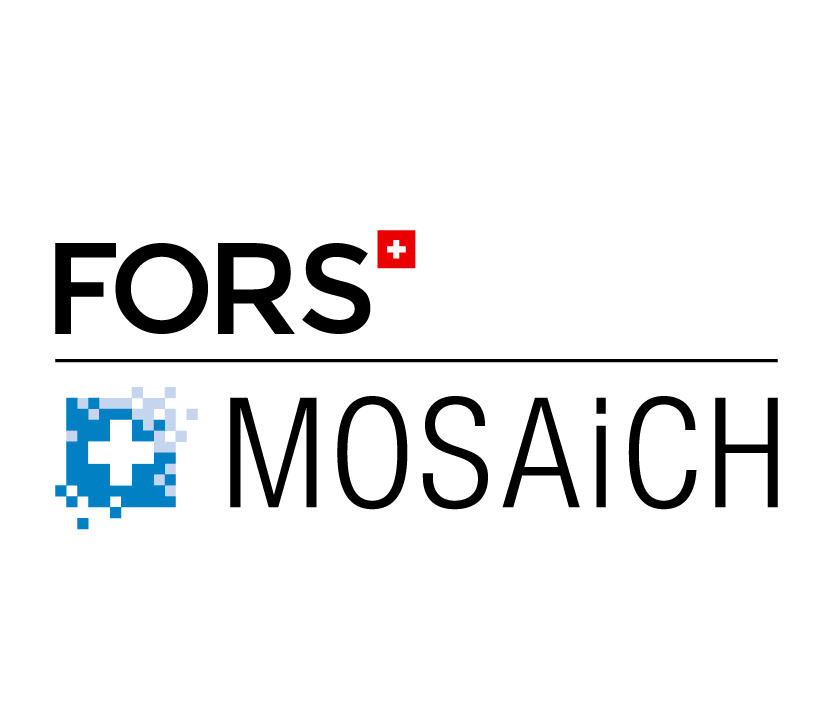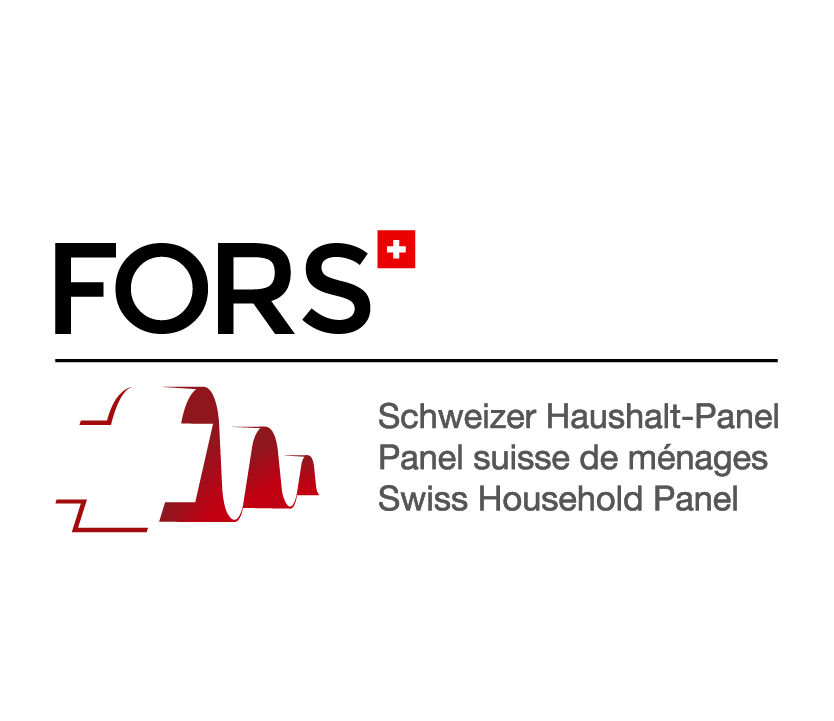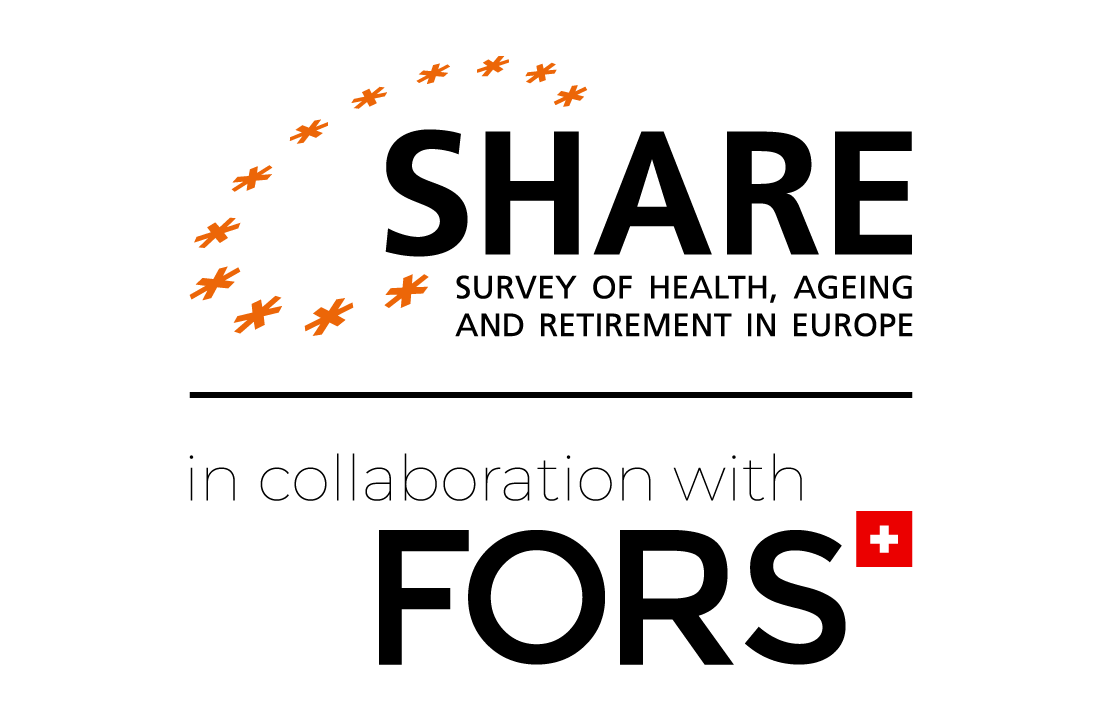Questions on COVID-19 were included in various FORS surveys and then made available to researchers in Switzerland.
Below a selection of surveys with research results and data around COVID-19.
The cumulated MOSAiCH COVID-19 dataset, including the three COVID-19 panel waves fielded from spring 2020 to spring 2021, is now available on SWISSUbase.
Results of the COVID-19 MOSAiCH survey, summarized in factsheets
Well-being and worries during the lockdown. Factsheet N°1.
Policy, fundamental rights and environmental concerns during the lockdown, Factsheet N°2.
Work situation during the lockdown. Factsheet N°3.
Reconciling family and career during the lockdown. Factsheet N°4.
Technical information on the MOSAiCH COVID-19 Survey
_______________________________________________
Publications:
The following contributions are based on the FORS COVID-19 MOSAiCH survey.
- We don’t need more “Grabens” in Switzerland by Gian-Andrea Monsch, Karin Nisple, Stephanie Steinmetz.
The German and French versions are published on the DeFacto platform.
- The willigness to receive the COVID-19 vaccine in Switzerland: Who wants it, who does not and why? by Gian-Andrea Monsch, Karin Nisple, Stephanie Steinmetz.
The German and French versions are published on the DeFacto platform.
_______________________________________________________
Lamprecht & Stamm conducted a study on the impact of the pandemic on volunteering on behalf of the Migros Culture Percentage and with data from the FORS COVID19-MOSAiCH study.
People who volunteer have weathered the pandemic better in several ways than those who do not do any volunteering. Although not every person who volunteers is more trusting of political and social institutions, they are more satisfied with their lives, receive more social support, are less socially isolated and suffer fewer bouts of depression.
Jan-Erik Refle, Marieke Voorpostel, Florence Lebert, Ursina Kuhn, Hannah S. Klaas, Valérie-Anne Ryser, Nora Dasoki, Gian-Andrea Monsch, Erika Antal and Robin Tillmann
Published in: FORS Working Paper Series
The data of the SHP COVID-19 Study are now available on SWISSUbase.
Scientific articles by the Swiss Household on COVID-19
The data of the first Corona Survey (SHARE Wave 8 COVID-19 data) has already been released in December 2020 and has already been used in various >> research publications from all over the world.
More information on SHARE data access here: www.share-project.org/data-access.html
More about the SHARE Corona Survey: www.share-project.org/special-data-sets/share-corona-survey.html and the SHARE-COVID19 research project: www.share-project.org/share-covid19.html
(10.10.21) A new study using SHARE data reveals which factors influence the willingness for vaccination across Europe.
Consult the scientific article
February 2022: Release 8.0.0 is available
Data from the second SHARE Corona Survey are now available. The second SHARE Corona Survey re-interviewed respondents of the first SHARE Corona Survey enabling to study changes between the start of the pandemic and the situation one year later in a cross-national perspective. The questions covered physical and mental health, Corona-related infections in the personal social circle, quality of healthcare, changes in work and economic situation, social networks and internet use during the pandemic.
Further, Release 8.0.0 comes with some major data improvements: It comprises the latest state of data cleaning and harmonisation across waves, offers new Accelerometry data, including epoch-data, and covers updated special datasets like easySHARE and the Job Episodes Panel.
Researchers can download the data free of charge after registration.
Here, you can find all information about data access and data documentation.
The Selects Panel Survey data is available on FORSbase.
Swiss COVID-19 Data Symposium (online) March 23, 2021
The Swiss Covid-19 Data Symposium organised by FORS gave social science researchers an overview of different Swiss datasets that could be analyzed to assess the impact of the Covid-19-pandemic on numerous aspects of individuals’ everyday lives.
COVID-19 data from the following surveys and studies were presented online: MOSAiCH, Swiss Corona Stress Study, Selects, Swiss Household Panel, COVID-19 Social Monitor ZHAW, SHARE and the COVID-19 Edition Science Barometer Switzerland. Researchers also got the chance to talk to the producers of the data and ask detailed questions.
All the presentation slides are uploaded on the COVID-19 Data Symposium website.
Contribution in the media
“Sie wollen ihr Vor-Corona-Leben nicht zurück: Warum rekordviele Menschen eine Firma gründen”, Luzerner Zeitung, 10.07.2021
L’évolution du stress en Suisse – la première vague de la pandémie, une pause pour les personnes stressées / Die Entwicklung von Stress in der Schweiz – die erste Welle der Pandemie verschafft gestressten Menschen eine Pause
12.07.2021 Neue Zürcher Zeitung (NZZ) “Die Pandemie bedeutete nicht für alle mehr Stress”
07.07.2021 Le Temps “Le semi-confinement a déstressé les plus aisés”
06.07.2021 Der Bund “Der Lockdown ist auch ein Stresskiller”
06.07.2021 La Côte “Coronavirus: la première vague a été une pause pour les personnes stressées”
06.07.2021 Le Nouvelliste “Coronavirus: la première vague a été une pause pour les personnes stressées”
06.07.2021 RTS info “La pandémie, une pause pour les personnes stressées”
06.07.2021 World in 24 “The first wave was a break for…”








 Bâtiment Géopolis,
Bâtiment Géopolis, +41 (0)21 692 37 30
+41 (0)21 692 37 30

